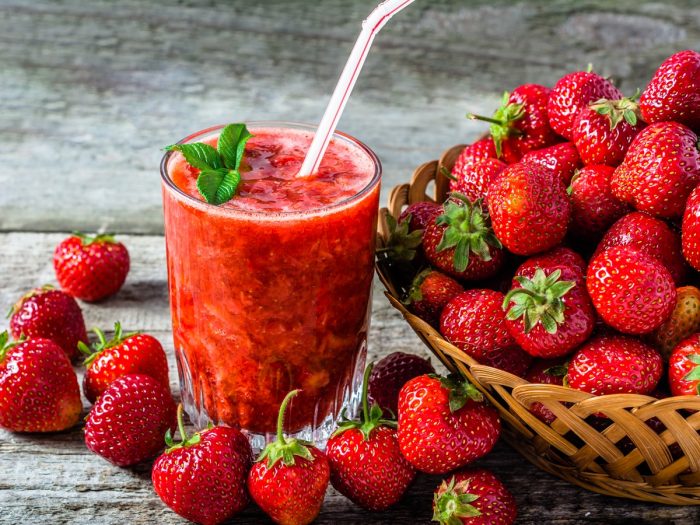Your strawberry smoothie may not be as healthy as you think!
The Environmental Working Group (EWG) has rated strawberries as the top pesticide-contaminated fruit in the list of top 2018’s ‘Dirty Dozen’ list of fruits and vegetables. And here’s the most startling fact, this is the third year in a row that strawberries have topped the list. 20 different pesticides were found on a single sample of strawberries! According to the EWG’s analysis of tests by the U.S. Department of Agriculture, about 70% of samples of conventionally grown produce are contaminated with pesticide residues. [1]
Various researchers say that no segment of the population is completely protected against exposure to pesticides. Pesticide residues have serious impacts on health. These include the impact on liver function, immune function, cognitive function, as well as the digestive and reproductive system. In severe cases, it can even turn fatal. [2]

The USDA tests found a total of 230 chemicals on the produce samples analyzed. So here are the highlights of the analysis.
Highlights of the Dirty Dozen 2018:
- More than 98% of most of the dirty dozen tested positive for at least one pesticide residue.
- On an average, spinach samples had 1.8 times more pesticide residue by weight than any other crop.
The Dirty Dozen List:
- Strawberries
- Spinach
- Nectarines
- Apples
- Grapes
- Peaches
- Cherries
- Pears
- Tomatoes
- Celery
- Potatoes
- Sweet Bell Peppers
Highlights of the Clean Fifteen 2018:
- Less than 1% of avocados and sweet corn samples showed any pesticides.
- Above 80% of most of the clean fifteen had no pesticide residues.
- Only 5% of clean fifteen vegetable samples had two or more pesticides.
The Clean Fifteen List:
- Avocados
- Sweet corn
- Pineapples
- Cabbages
- Onions
- Sweet peas (frozen)
- Papayas
- Asparagus
- Mangoes
- Eggplants
- Honeydew melons
- Kiwis
- Cantaloupes
- Cauliflower
- Broccoli
Foods that have a thick skin can be washed and peeled but what about the rest? It does not mean that you need to skip strawberries and spinach. Organic produce may be your best alternative to them, says the organization. Eat safe, stay fit!
